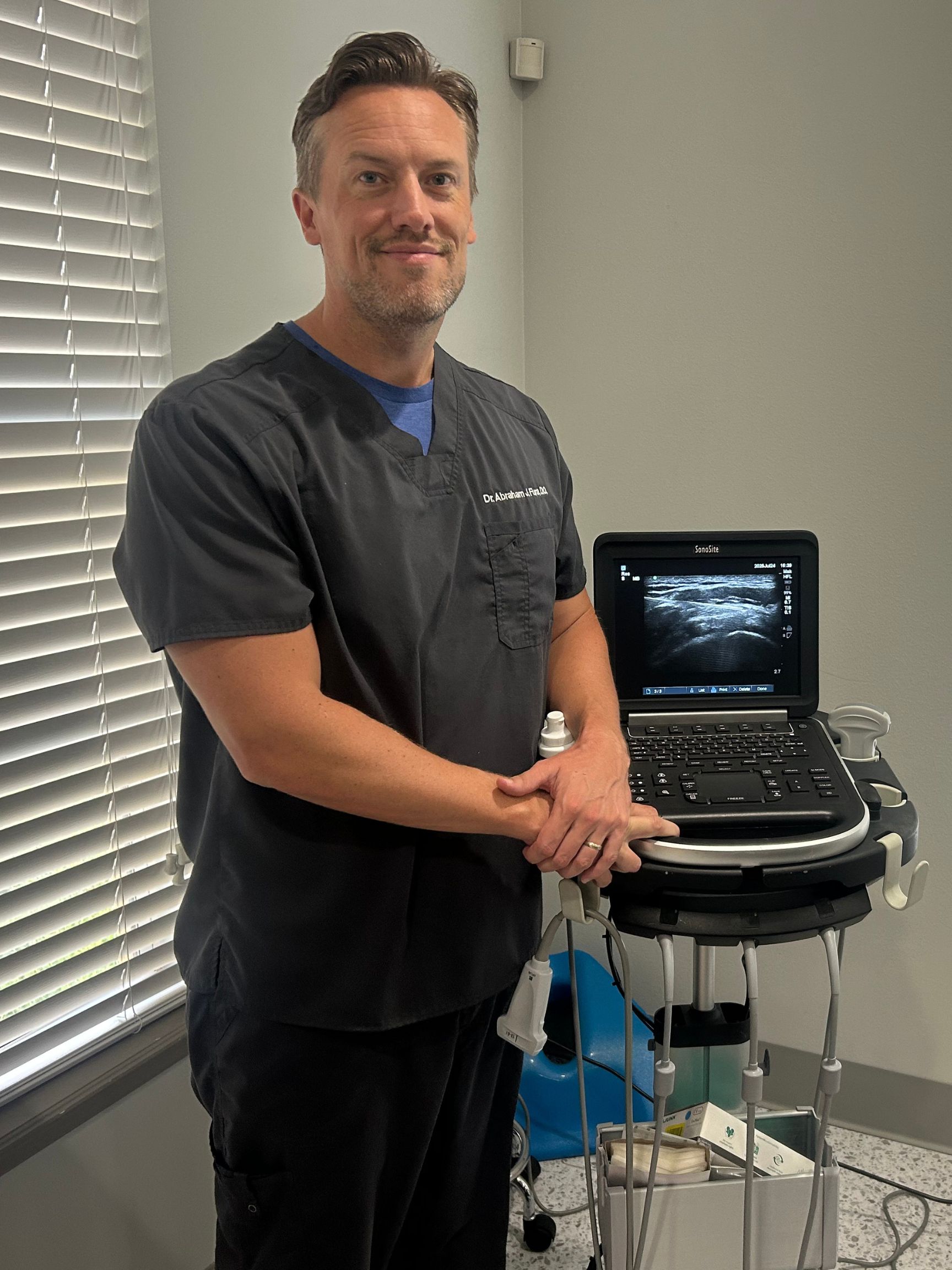
CONDITION OVERVIEW
Radiculopathy is the medical term for a "pinched nerve" in the spine. It occurs when a nerve root—where nerves branch off the spinal cord—becomes compressed or inflamed. This compression triggers a cascade of symptoms like sharp pain, numbness, tingling, or weakness. Crucially, these symptoms are rarely felt at the source of the problem. Instead, they radiate along the nerve's path into an arm or leg. Understanding this condition is the first step toward an accurate diagnosis and effective, targeted treatment.

ROOT CAUSES
Radiculopathy is caused by any condition that narrows the openings in your spine where nerve roots exit. This narrowing puts direct pressure on the nerve, leading to pain and other symptoms.
The most common cause. The soft inner material of a spinal disc pushes outward, pressing directly against the highly sensitive nerve root.
Age-related wear and tear can lead to a narrowing (stenosis) of the spinal canal and the formation of bone spurs that crowd and compress the nerves.
As discs naturally thin and lose height with age, the vertebrae move closer together, which can shrink the nerve openings and pinch the nerves.
Trauma from an accident or severe inflammation from conditions like arthritis can cause swelling that puts sudden pressure on a nerve root.

RECOGNIZING THE SIGNS
The hallmark of radiculopathy is radiating symptoms. The specific location of your symptoms provides a clear roadmap to which nerve in your spine is being affected.
A sharp, shooting, burning, or "electric shock" pain that travels from the spine down an arm or a leg.
A persistent "pins and needles" sensation or a complete loss of feeling in specific parts of an arm, hand, leg, or foot.
The compressed nerve can't send proper signals to muscles, causing weakness in the limb. This can affect grip strength or cause "foot drop."
During an exam, a physician may find that key reflexes in the arm or leg, such as the knee-jerk or bicep reflex, are diminished or absent.
Symptoms that are reliably worsened by certain positions or movements, like turning your head or sitting for long periods.
Although the most dramatic symptoms are in the limb, a dull, aching pain is often present in the neck or lower back at the site of the pinched nerve.
Pain, numbness, or weakness that travels from your spine into your arm or leg is a clear sign of a pinched nerve. Don't wait for the symptoms to become debilitating. An accurate diagnosis to find the exact source of the nerve compression is the first step toward targeted relief. Contact us to get to the bottom of your radicular pain.